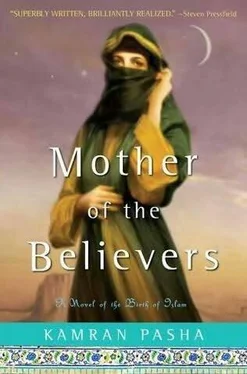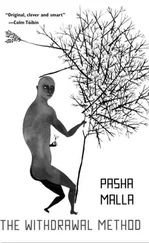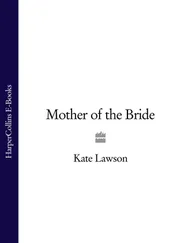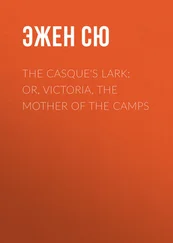“Your fortress would be an important staging ground for the imperial army,” Donatus said in his awkwardly accented Arabic, clearly taught to him by those who spoke the dialects of the Syrian desert.
There was a moment of tense silence as the elders considered the ramifications of the proposed alliance. Safiya saw that all eyes were on Huyayy, whom the Jewish chieftains deferred to as the most experienced man in dealing with Muhammad and his troublesome religious movement. As the rapid spread of Islam was now the primary topic of conversation among the political elites, her father had become the de facto leader of the Khaybar community, even though he was a refugee who had survived only because of the generosity of local citizens.
Huyayy eyed the Byzantine ambassador coolly, his brows knitted in deep thought. Safiya knew that her father was glad to have found a potential new ally against Muhammad, but his inherent distrust of Gentiles was holding him back from embracing the envoy’s offer.
“Forgive me if I hesitate, but your people have shown little respect for mine before this day,” Huyayy said. “You have butchered us under the lie that we killed your Christ.”
There was a murmur of surprise at Huyayy’s bluntness, but Safiya knew that her father was saying aloud what everyone was thinking in their hearts. The Jewish experience under Roman rule had been exceedingly painful, culminating in the destruction of Jerusalem and the Diaspora, which had sent her people out of Palestine and forced them to settle all over the world. Centuries of history could not be erased overnight, whatever the immediate political needs of the moment.
If the Byzantine emissary was offended by Huyayy’s lack of diplomacy, he was too experienced in his profession to show it. Donatus made a face of practiced grief and bowed his head before the Jewish elders.
“What you say is regrettably true,” he said, to the surprise of his audience. “There have been many injustices under the reign of our forefathers. Men blinded by faith or seeking an easy scapegoat to cast the troubles of the empire upon. But the great Heraclius is not like those men. He reveres the Jewish people, for is it not true that Christ himself shared your blood?”
It was a perfectly worded response, and Safiya could see that the men of Khaybar had been put at ease by his feigned contrition. Of course no one believed for a moment that the Roman envoy felt any guilt for the crimes of his people, but he obviously needed their help enough to wear a mask of calculated humility.
“What guarantees would we have if allied with your emperor?” Huyayy asked.
“Once you have helped us clear Arabia of this madman, you will be appointed His Majesty’s viceroys to rule the new province in the emperor’s name.”
Safiya saw her husband, Kinana’s, watery eyes light up at the offer of dominion over the Arabs, and her dislike for him only increased.
There was a clear buzz of excitement at the envoy’s words, but if Huyayy shared the sentiment of his people, he was too masterly a statesman to show it. Safiya’s father stepped forward, his face stern, until he was uncomfortably close to the envoy. Donatus, to his credit, did not flinch under the old man’s withering stare but met it head-on.
“Your emperor can find someone else to rule this desolate waste,” Huyayy said after a dramatic pause. “My people’s heart belongs elsewhere. In a land where we are not permitted to go.”
Safiya knew that Huyayy was playing a dangerous game here, but it was a gamble that could change the history of her people if he won. For there was, in truth, only one thing that any Jew desired, and it was the one thing that had been denied her people for over five hundred years. The chance to return to their homeland from which they had been barred since the days of the Jewish revolt against the Romans under Simon Bar Kokhba, the false Messiah who had led their people to tragedy.
The Byzantine envoy stood motionless, his face a controlled mask, impossible to read. Finally he spoke. “I have been authorized by the emperor himself to guarantee that if your people join forces with Byzantium, he will rescind the ban. Once this Arab king is defeated, your people will be free to emigrate to Palestine.”
There were cries of disbelief and shouted prayers to God, who had shown their people a way at last to end the tragedy of exile. Safiya was torn by a confused upwelling of emotion. A deep longing to see her people return to the Holy Land, mixed with grief that the price would be to destroy a man whose only apparent desire was to bring the Gentiles to God and a better way of life.
Though the excitement in the many-pillared hall was almost palpable, Huyayy remained calm and seemingly unimpressed.
“And what of Jerusalem?” he said loudly, his simple question immediately silencing the agitated crowd.
And for the first time, Donatus appeared taken aback, as if he had not expected the Jews to press their demands further. He hesitated and then shook his head.
“I regret that I cannot offer you full access to the holy city,” he said, to the dismay of the crowd. “It is still a very sensitive matter for the Holy Church.”
Huyayy shrugged and turned his back on the ambassador.
“Then we have no arrangement,” he said, and began moving toward the carved bronze door of the chamber, as if the matter had been concluded. And then, to Safiya’s amazement, the other elders of Khaybar rose and moved to follow him. A mass exodus signaling the failure of Byzantine diplomacy.
Donatus blanched, his eyes wide with surprise and a hint of fear. Safiya suddenly felt sorry for the feminine little man, who would likely face terrifying consequences if he returned to Heraclius empty-handed. But she knew her father was doing what he had to as a politician, using whatever leverage he felt he needed to achieve his objectives.
As the leadership of Khaybar approached the exits, Donatus shouted for them to wait.
“I believe that I can convince the emperor to make certain exceptions,” he said, his silky tone gone, replaced with agitation. “An annual pilgrimage to your holy sites. But that is the furthest I can go.”
Huyayy stopped and turned to face the envoy, his eyes bright with renewed interest. Donatus took a deep breath and regained his composure.
“If that is unacceptable to you, then I will return to His Majesty with your regrets,” he said coldly. “But please keep in mind-when the soldiers of Byzantium enter these lands, you will not be afforded the protection of an ally.”
It was an open threat, and one that weighed heavily on everyone in the room. The legions of Constantinople were coming, whether the Jews eased their way or not. They could either help Heraclius eliminate the Muslim threat or face elimination in turn.
Safiya watched her father, who moved back to stand before Donatus. He did not seem afraid of this man who regularly stood in the presence of kings, whose words could mean life or death for his people. Whatever she may have thought of her father’s politics, he could never be branded a coward.
And then Huyayy held out his hand and grasped the palm of the Byzantine ambassador.
“Tell your emperor-we have an arrangement.”
THAT NIGHT SAFIYA HAD a troubling dream. As she tossed and turned beside Kinana on their wide bed made of carved pine, she dreamed that she was walking down the paved roads of Khaybar, the city that had become her home since her tribe’s expulsion from Medina. But instead of the brightly painted stone houses, she saw only smoking ruins, the mighty walls of the citadel shattered and crumbling. And instead of children running and laughing through the streets, she saw only corpses rotting in the alleyways.
Safiya tried to run away, but wherever she turned, she saw only death and devastation. The stench of decay was overpowering and her stomach trembled with nausea. She finally fell to her knees in grief and raised her eyes to the heavens, pleading for help from a God who had chosen her people and then cruelly forgotten them.
Читать дальше












